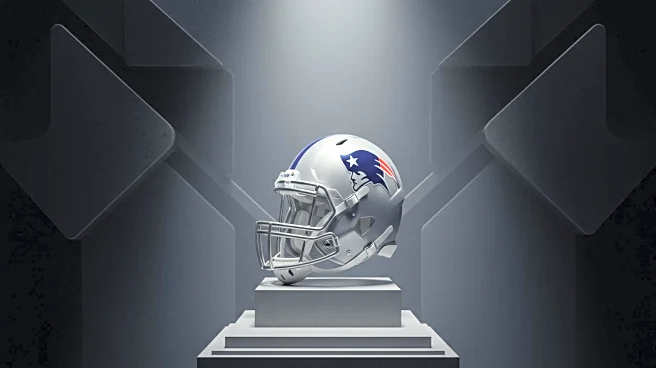What's Happening?
The NFL has seen a significant increase in franchise values following the league's decision to allow private equity investments. This move, debated for years, was implemented with restrictions compared to other major U.S. leagues. The average NFL team is now valued at $7.13 billion, marking a 20% increase from the previous year. The Dallas Cowboys lead the valuations at $12.8 billion, followed by the Los Angeles Rams and New York Giants, both surpassing the $10 billion mark. The introduction of private equity has been described as a 'sea change' for the NFL, with almost every team engaging with approved private equity firms. This shift is expected to address generational ownership issues and provide legacy families with the ability to retain their assets indefinitely.
Why It's Important?
The rise in NFL franchise values has significant implications for the sports industry and the broader economy. It highlights the growing attractiveness of sports teams as investment assets, offering non-correlated returns even during economic downturns. The involvement of private equity firms is likely to increase the financial stability and longevity of team ownership, potentially leading to fewer team sales and longer ownership tenures. This development could also influence other sports leagues to consider similar investment models, thereby reshaping the landscape of sports ownership and investment.
What's Next?
The NFL is poised to continue evolving its business model, with teams increasingly recognizing their global brand potential. The league is exploring international markets and technological advancements in broadcasting, which could further boost revenue. Additionally, the upcoming 2029 media opt-out presents an opportunity for the NFL to renegotiate TV contracts, potentially leading to increased revenue. Teams are also expanding their business ventures beyond football, such as launching production studios and developing mixed-use real estate projects, which could further enhance their financial standing.
Beyond the Headlines
The integration of private equity into NFL ownership raises ethical and cultural considerations, particularly regarding the commercialization of sports and the potential impact on fan engagement. As teams become more business-oriented, there may be concerns about maintaining the traditional values and community connections that have historically defined sports franchises. Additionally, the focus on maximizing revenue could lead to increased ticket prices and changes in the fan experience, prompting discussions about the balance between profitability and accessibility.








